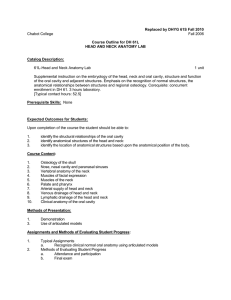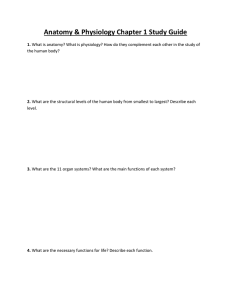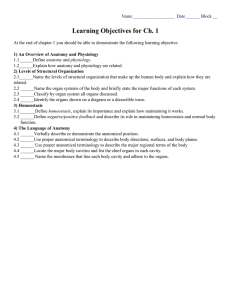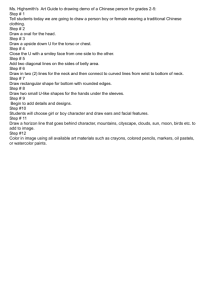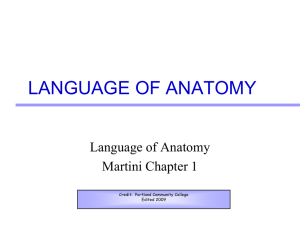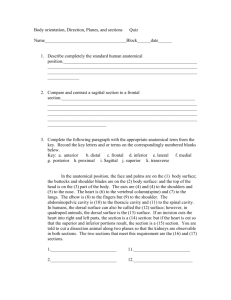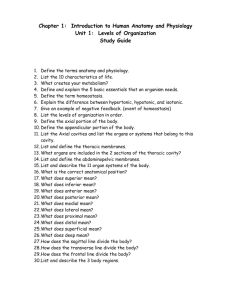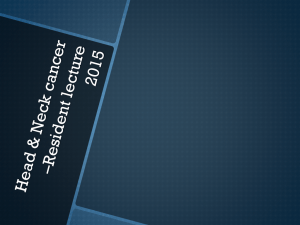Chabot College Fall 2006 61 - Head And Neck Anatomy
advertisement
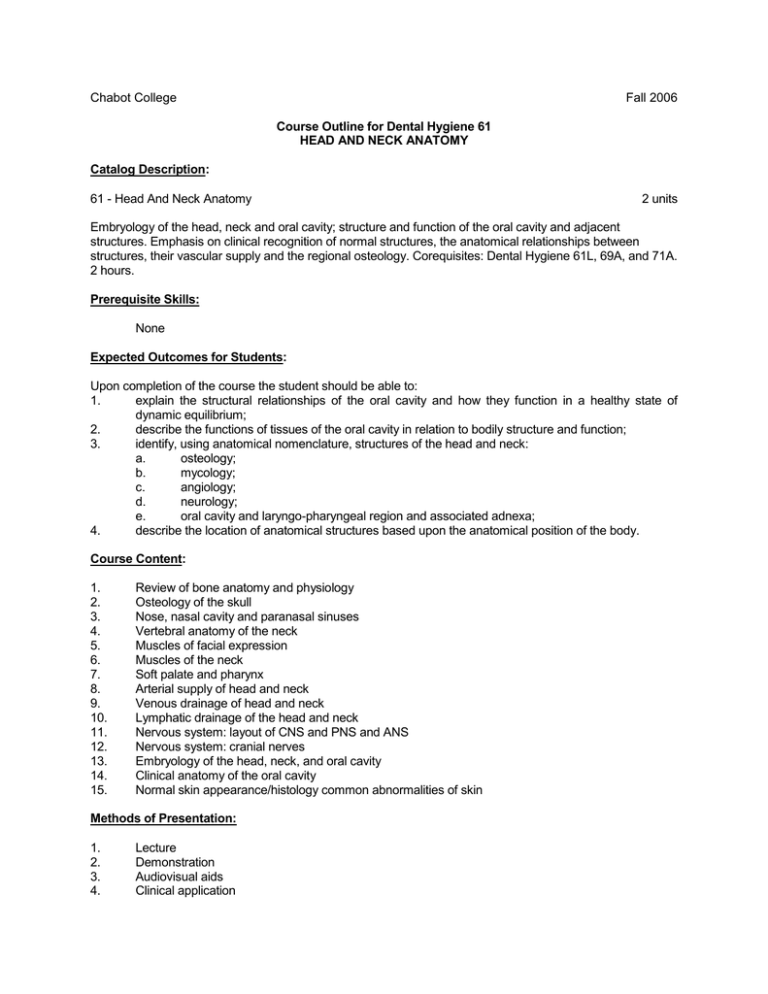
Chabot College Fall 2006 Course Outline for Dental Hygiene 61 HEAD AND NECK ANATOMY Catalog Description: 61 - Head And Neck Anatomy 2 units Embryology of the head, neck and oral cavity; structure and function of the oral cavity and adjacent structures. Emphasis on clinical recognition of normal structures, the anatomical relationships between structures, their vascular supply and the regional osteology. Corequisites: Dental Hygiene 61L, 69A, and 71A. 2 hours. Prerequisite Skills: None Expected Outcomes for Students: Upon completion of the course the student should be able to: 1. explain the structural relationships of the oral cavity and how they function in a healthy state of dynamic equilibrium; 2. describe the functions of tissues of the oral cavity in relation to bodily structure and function; 3. identify, using anatomical nomenclature, structures of the head and neck: a. osteology; b. mycology; c. angiology; d. neurology; e. oral cavity and laryngo-pharyngeal region and associated adnexa; 4. describe the location of anatomical structures based upon the anatomical position of the body. Course Content: 1. 2. 3. 4. 5. 6. 7. 8. 9. 10. 11. 12. 13. 14. 15. Review of bone anatomy and physiology Osteology of the skull Nose, nasal cavity and paranasal sinuses Vertebral anatomy of the neck Muscles of facial expression Muscles of the neck Soft palate and pharynx Arterial supply of head and neck Venous drainage of head and neck Lymphatic drainage of the head and neck Nervous system: layout of CNS and PNS and ANS Nervous system: cranial nerves Embryology of the head, neck, and oral cavity Clinical anatomy of the oral cavity Normal skin appearance/histology common abnormalities of skin Methods of Presentation: 1. 2. 3. 4. Lecture Demonstration Audiovisual aids Clinical application Chabot College Course Outline for Dental Hygiene 61, Page 2 Fall 2006 Assignments and Methods of Evaluating Student Progress: 1. Typical Assignments a. Identify clinical normal oral anatomy using CD ROM and slides 2. Methods of Evaluating Student Progress a. Attendance and participation b. Three midterm examinations c. Final examination Textbook(s)(Typical): Illustrated Anatomy of the Head and Neck, Fehrenbach & Herring, W.B. Saunders, 2000 or most recent edition Special Student Materials: None jg/tsp, G:\Course Outlines\2005-2006\DH 61 Revised: 4-20-05
